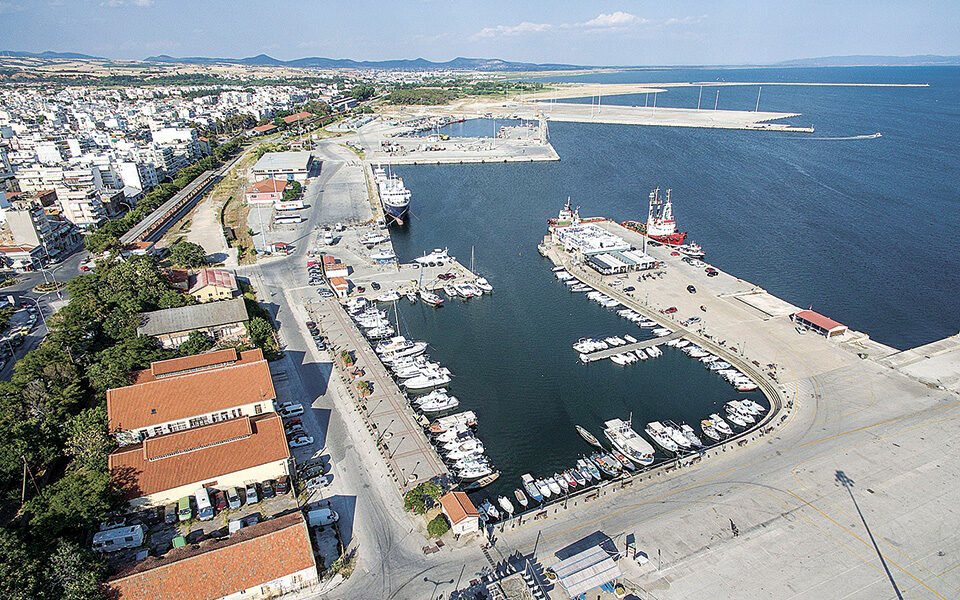Alexandroupoli set to become even busier

The northeastern port of Alexandroupoli is about to get even busier, with shipments from and to Ukraine and plans for a road and rail connection to facilitate them.
The inconclusive meeting in Ankara between the foreign ministers of Russia and Turkey, Sergey Lavrov and Mevlut Cavusoglu, who had sought to create a safe passage for merchant ships in the now heavily mined and dangerous Black Sea, has made a safer land route a viable, even urgent, option.
Kathimerini understands that there are talks involving the EU and Ukraine for the transport of bulk cargo from Ukraine to the Mediterranean by land, due to the Russian blockade of Ukrainian ports and the gridlock in the Bosporus Strait. Not only that, there are also reports of Russians seizing Ukrainian cargo and selling it to Turkey, with both countries active in contraband trade.
Specifically, the Ukrainians seek to export wheat, corn and sunflower seeds through Alexandroupoli, as well as iron ore and glass. Shortages in glass, in which Ukraine is the leading global producer, have negatively impacted production of many items, including solar panels.
Ukraine also wants to import goods, mostly from the US but also East Asia, through Alexandroupoli.
The port authorities say that they can fulfill some of the demand, but the port needs to expand its capacity to host bigger ships. Private investors have expressed interest in submitting bids; a Saudi Arabian delegation visited the city early last week.
The rail connection through Bulgaria, Romania and Moldova exists but must be upgraded; there are also compatibility issues in the infrastructure and rolling stock between the three EU countries and Moldova and Ukraine.
Alexandroupoli has also seen its role as a military hub increase, with heavy movement of troops and equipment through the port. The volume is expected to increase substantially through the end of September.





